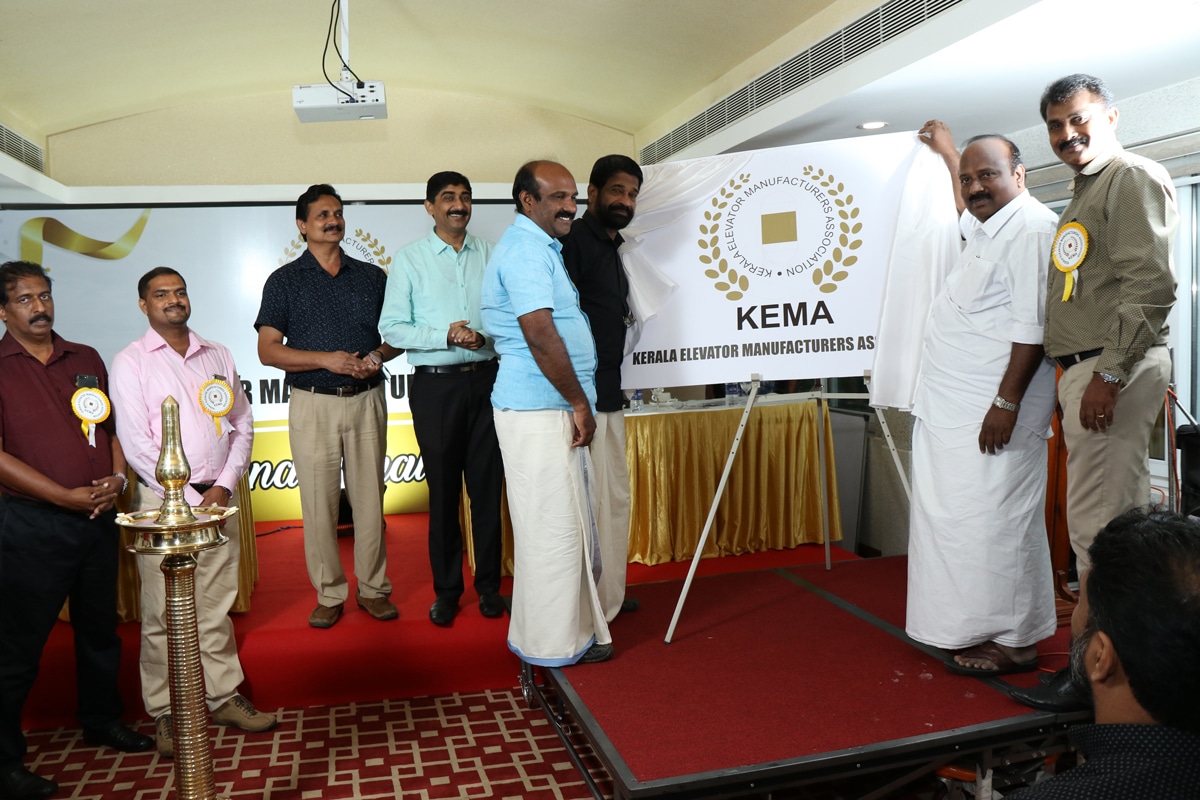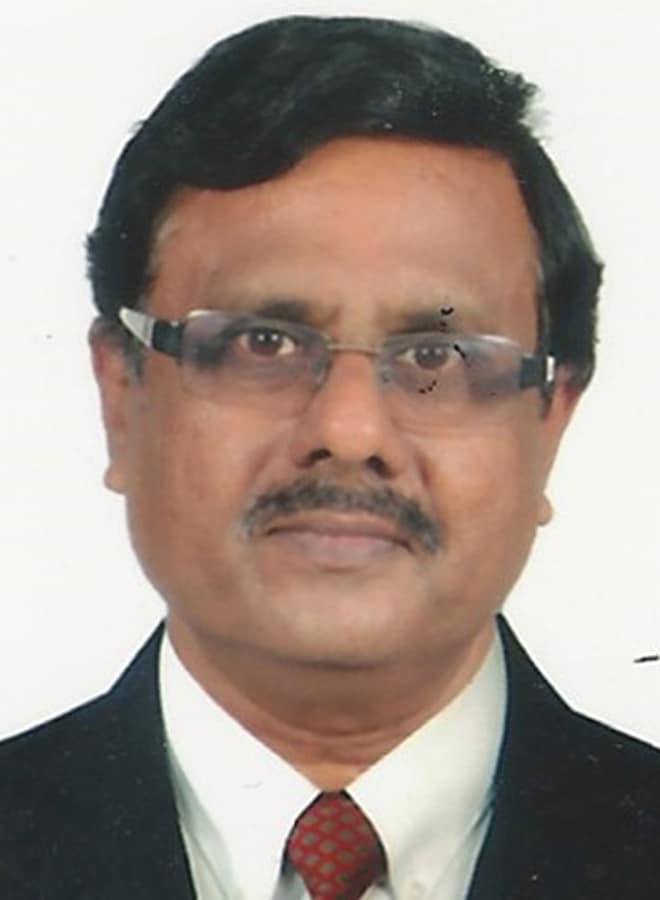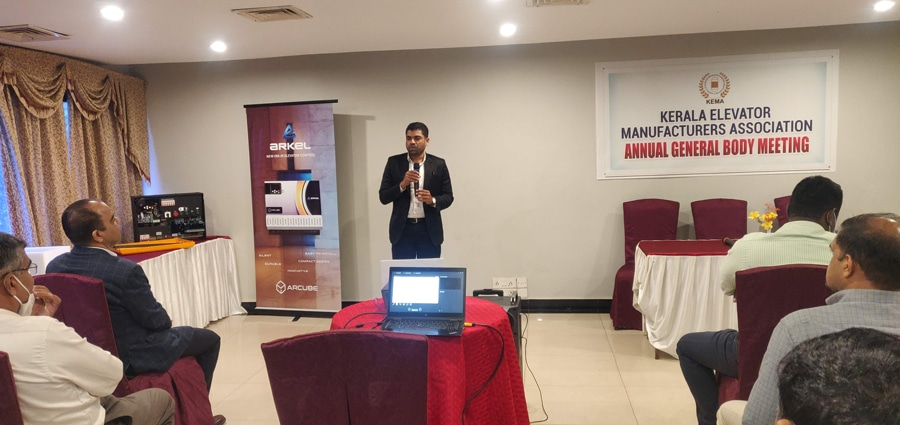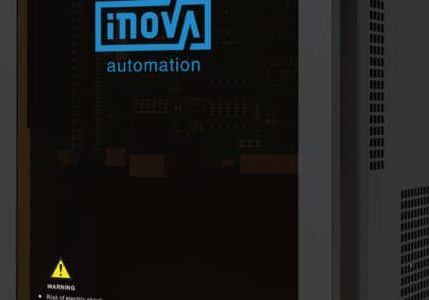Essential Service
Sep 3, 2021

Your author (SSP) speaks with Kerala Elevator Manufacturers Association (KEMA) President Narayan Menon (NM) about filing a petition to fight for essential status for the VT industry in India amid the second COVID-19 lockdown.
SSP: What was the prime objective behind filing the petition?
NM: With the sudden lockdown and change of the government, everyone was unaware of how the industry was going to take the full impact of the uncertainties. Making everyone take the necessary course of action was an uphill task for the industry, as precious time was wasted. Certain companies and organizations in the state were holding webinars only, but what we require is permission to function effectively. The vertical-transportation (VT) industry is still in its infancy when it comes to making decisions. Taking such an initiative for a state that has fewer high-rise buildings compared to other metro cities was not an easy path. We at the Kerala Elevator Manufacturers Association (KEMA) decided we had to do something for the industry. Just sitting and discussing corporate affairs is not going to work unless and until we deliver.
SSP: What were the major barriers encountered during the process?
NM:The unavoidable lockdowns, election process and changes in the State Government added to our difficulty in starting up the process and approaching them, but eventually, we got it done. Based on a notification copy in Marathi that had to be converted into English and confirmed by a helpful person in Amravati as a support document, the papers moved from the KEMA office in Kochi to Trivandrum, initially for the process of document submission in person to the various departments in the state capital. The same day, the papers were filed by our advocates in the High Court to speed up the decision-making process. In order to succeed, the whole process required an investment of time, expertise, effort and resources at a critical time.
Further Thoughts on the Recent Order

Avinash Challa is the president of Telangana Elevator Association (TEA), Federation of Indian Elevator Companies, Delhi, and founder of Cube Elevators, a company that installs home elevators. He entered the elevator market in the year 2007, and in 2017, he started trading elevator spares in the name of Lifts Trade Pvt Ltd. He comments on the recent order passed in the High Court for the state of Telangana at Hyderabad:
“Telangana Police were kind enough to understand the situation in providing elevator services during the lockdown period and have given emergency passes to the members of the Telangana Elevator Association in 2020. Telangana was the first state to respond quickly and acted in a positive way, which helped many customers. In 2021, however, because e-passes were issued online and cases were high in the state of Telangana, the passes were getting rejected, and many challans were issued on the names of technicians who were on duty at the time. In this regard, TEA approached the High Court for the state of Telangana at Hyderabad and got a positive order.
“With Arun Agarwal, Managing Director, Apex Elevators, we approached the Supreme Court of India to consider elevator services as an emergency service, waiting for a national order, which can help all the states. With the support of all the official members, TEA has strength of 29 dedicated companies. We regularly conduct online virtual meetings to discuss the issues which our industry is facing.
“It is very important that all state-level associations support the Federation of Indian Elevator Companies so we can unite and make national-level decisions to solve the issues of the industry. Just like drug control, if the government controls the supply of the elevator material, we can resolve the unauthorized installations that are happening in India. We propose that the licensed lift part manufacturers or the licensed lift part traders should supply material only to licensed lift companies.”
SSP: What were the primary concerns addressed by the High Court? What were your expectations for the elevator industry?
NM: Order of The Honorable High Court of Kerala was sought to avoid further delays in the decision-making process and avoid complications faced by our customers and the entire industry. The final order may not address all our areas and concerns, but this may point in the right direction as it merits due consideration from prime movers in the VT industry for further action.
SSP:What were the focus areas while filing the petition on behalf of KEMA?
NM:Being from the VT industry, we know the consequences of lifts running without proper maintenance. We handle Kerala government hospitals and government medical services warehouses, which need heavy-duty lifts with regular maintenance in addition to lifts in every segment all over the state. We also focused on other areas like high-rise buildings, cargo lifts and hospitals that require regular maintenance and repairs, along with vaccination for our technicians. It took a few weeks for the final order to come out during the pandemic, even though the interim order was passed by the High Court earlier, but it was a major step. VT has to be considered an essential service, as we are putting our lives at risk to effectively operate the equipment for public usage.
SSP: What are your suggestions to other associations and industry stakeholders?
NM:May I take the liberty to suggest that real estate associations like The Confederation of Real Estate Developers’ Association of India (CREDAI), the department of Electrical Inspectorate, which issues a license, and major elevator companies in the country should come forward to ease operation difficulties and gain recognition for the industry. We have taken a very small but significant step. When the media reported on it, a lot of other state associations felt they should take proactive steps too. If every association takes such small steps, the government will consider our needs. Together, we need to make sure VT is considered and declared an essential service. This has to be conveyed effectively to the people who make decisions at the government level. This can be done through different state bodies and associations. All they have to do is get permission for utility services to continue. Everyone has to feel responsible for the VT industry as a whole. Also, with many illegal companies in the market, only licensed ones should be allowed to function. How all states consider this is up to them, but this is just a beginning. There is a need to focus on standardization, safety and many other areas. We have a long way to go.
SSP: What are the steps undertaken by KEMA on awareness and education? Have any such specific activities been organized by the association in recent years?
NM: KEMA has taken steps from its inaugural function held on September 1, 2019, with a few companies from all over the state. This was followed by conducting a study class at our facility with trainers from the Electrical Inspectorate Department training members on mandatory software usage. We have organized full-day events with various product manufacturers as part of our ongoing strategy to enhance our product knowledge along with vendor development to ensure quality products are being supplied to clients and maintenance quality is enhanced. To update the recent trends in the service industry, we needed to collectively gear up to develop and absorb new technologies and facilitate remote monitoring for timely service and effective maintenance.

Narayan Menon is the president of KEMA. He has been leading a group of elevator industry stakeholders in Kerala to achieve their mission of achieving essential status for the VT industry. With a career span of over four decades and exposure to assemblies, spare parts management, sales, purchase, logistics and business development, both nationally and internationally, he aims to impart the knowledge gained in various industries to the VT industry. Menon has also managed a separate elevator company, Smartech Elevators, over the years.
SSP:What is the importance of having state-level associations for the VT industry and their key role?
NM: The need to bring together elevator industry stakeholders who think alike for enhancing the standards and communicating the requirements for growth was the motivating factor in forming an association of professionals. An organized communication platform that addresses the needs of the member companies and enhances operational standards and overall interaction with clients, government departments and vendors was essential. We firmly believe as an ever-expanding team, we shall deliver and address not only the requirements of the local industry in the coming days to the best of our ability, but take steps for other states to form effective associations for organizing and uniting their local VT companies for ease of interaction throughout the country.
SSP: What are your plans in terms of extending the essential services and making them applicable for maintenance and repairs of residential and office high rises, etc.?
NM:As I have mentioned earlier, to ease operational requirements as part of our drive, government departments in the state of Kerala were approached recently about making the VT industry an essential service and for acquiring travel permits and the vaccination of technicians. The permit request was for transportation of materials, travel permits for technical members maintaining elevators in the medical sector and warehouses and high-rise apartments during travel restrictions imposed on account of lockdowns. It sought smooth functioning of the VT industry as an essential service that should be allowed and recognized by the government authorities at a national level. Equipment maintenance and safe operations should also be considered as essential requirements during pandemics, natural disasters and emergencies. Seeking national support from the construction industry, key high-rise building owners’ associations country-wide, the Industrial Ministry, State Electrical Inspectorate Departments, etc., will help in consolidating our operating environment.

Get more of Elevator World. Sign up for our free e-newsletter.








